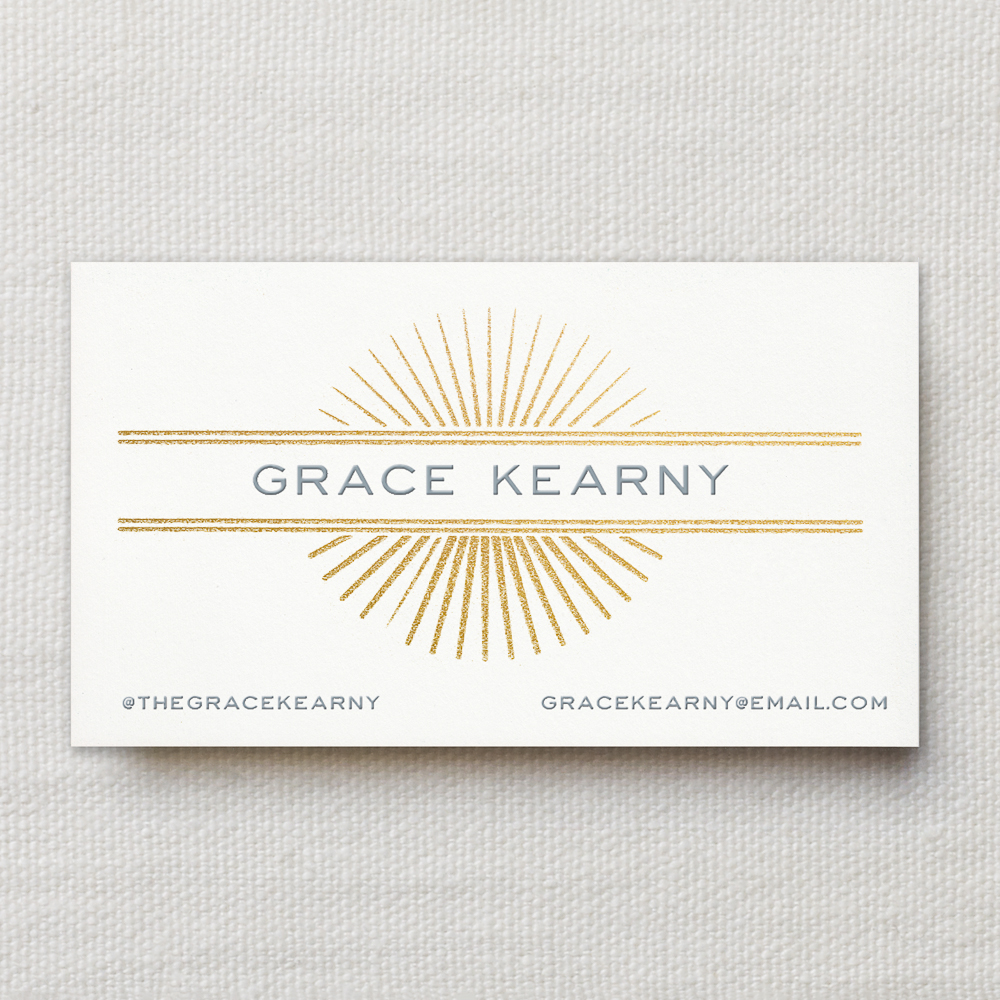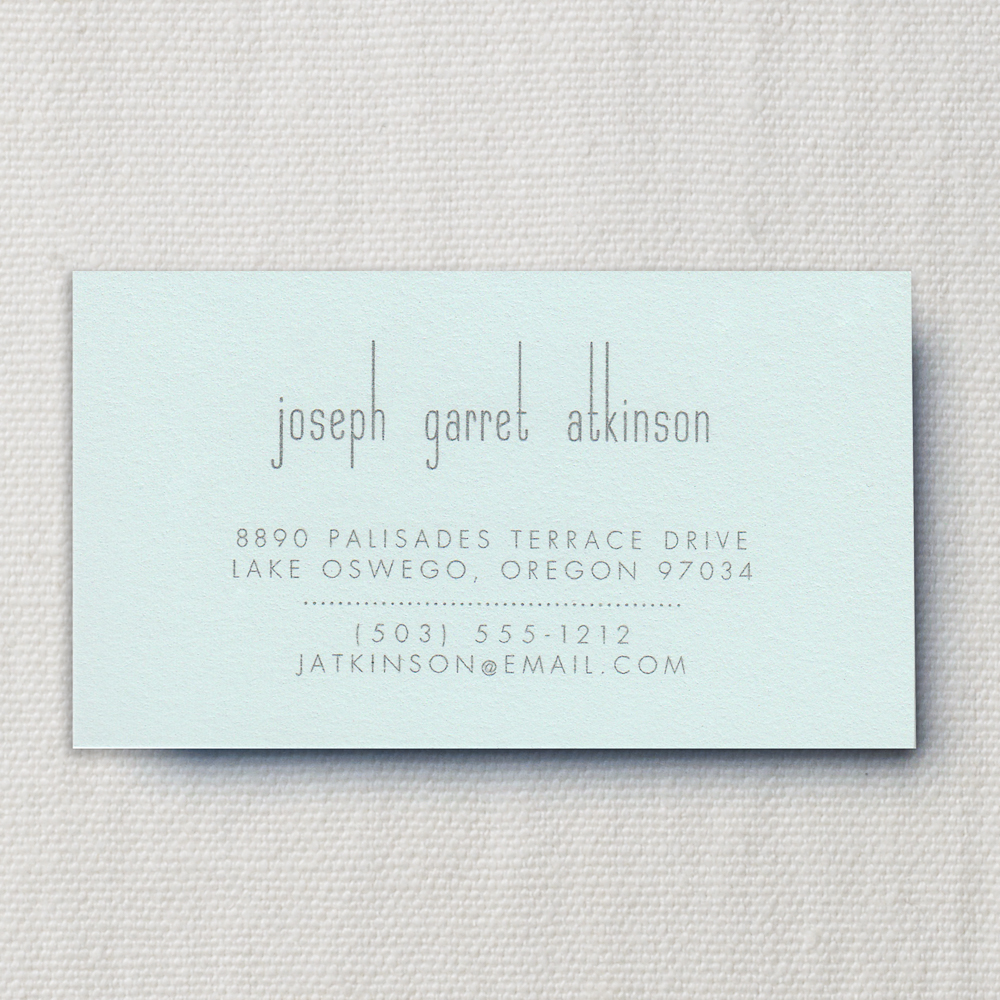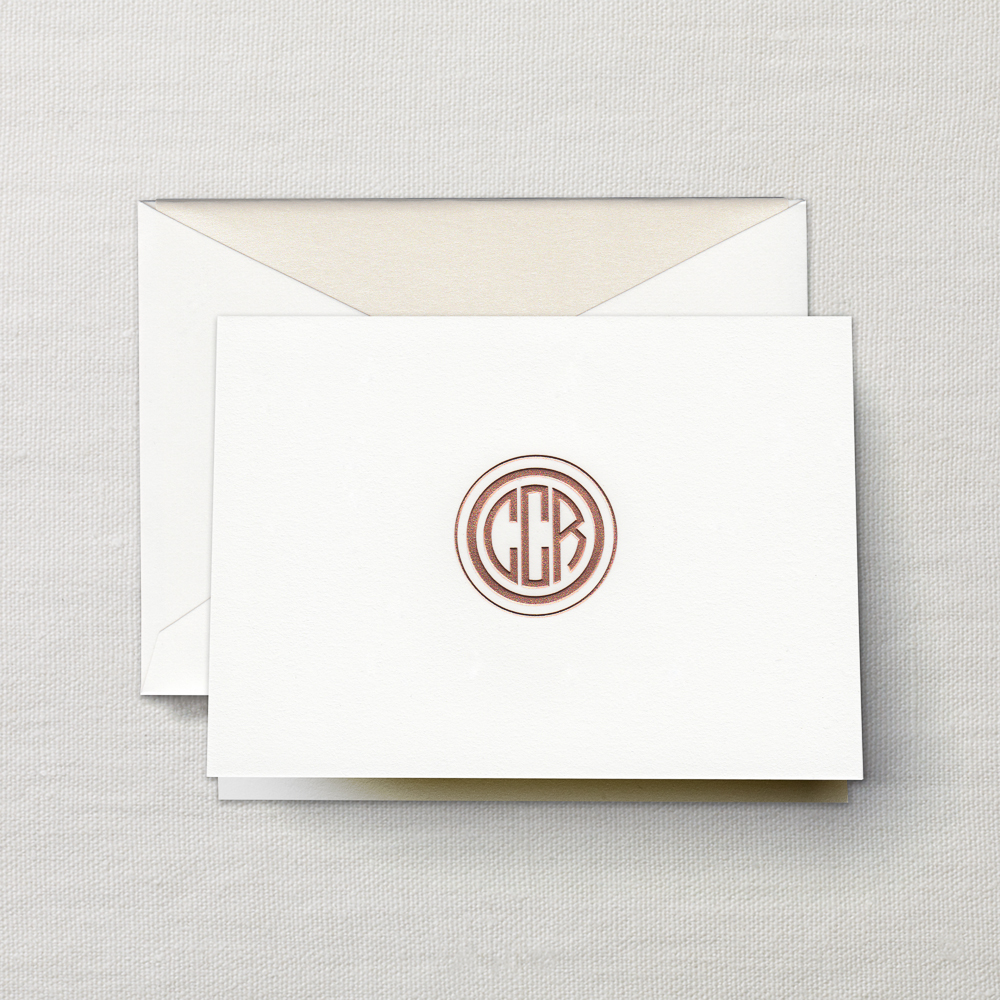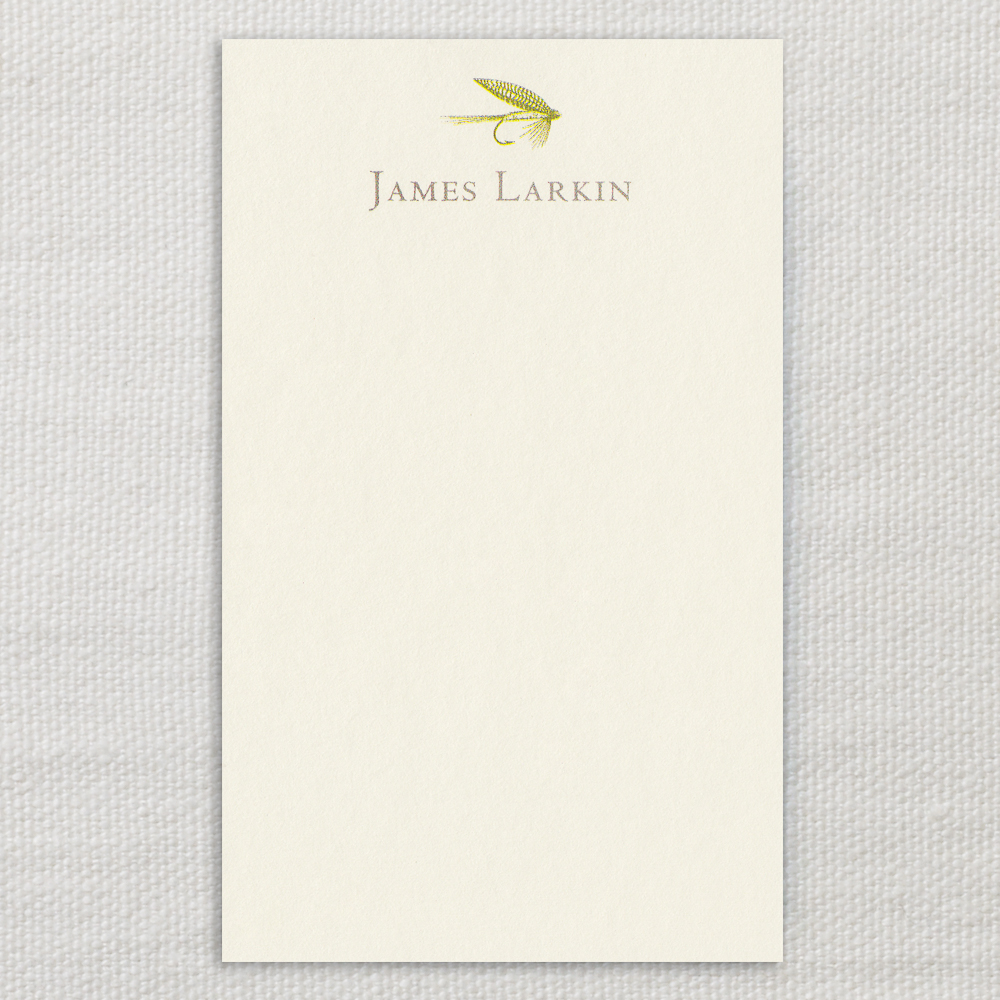If you’re flying solo in business, standing out from the crowd is of paramount importance. In the exciting but competitive world of freelancing or independent consulting, making a lasting impression can also make a real difference when it comes to winning contracts, impressing clients and expanding your network.
Choosing personalized stationery is a small but powerful way to make your own statement of professionalism. With your bespoke card or correspondence in their hand, prospective clients will instantly recognize your purpose, your style and your commitment to quality.
The following items come highly recommended for independent businesspeople. Much more than just paper, they’re an expression of your business philosophy – and your success.
 Calling Cards
Calling Cards
As a freelancer, you never know when your next business opportunity might appear. But it’s vital that you’re ready to seize the moment when it does.
However, if you think business cards are a catch-all for staying in touch with worthwhile connections, think again. During social occasions, exchange calling cards instead – and knowing that difference already shows class, sophistication and attention to detail.
Calling cards are small, personalized cards tailor-made for networking. They contain personal details including your name, phone number, email address, mailing address and social media handles. Calling cards are ideal for making a stylish but casual link that might just lead to a future business deal. Remember, calling cards shouldn’t include business-related information – keep it social.
 Business Cards
Business Cards
Take your business relationship a stage further from calling cards and add business cards into your stationery collection.
Business cards make it clear that you’re looking to develop a professional relationship. While your calling card sticks to social contact information, a business card should include the name of your business and your role within it. In many cases, your own name may be the name of your business, but your business cards can elaborate on what it is you do.
The standard (and most popular) size for a business card is 3 ½ inches x 2 inches. Larger companies may look into different sizes and folded cards, but for an independent operator it’s generally advisable to keep things simple and professional.
Most business cards are white or ecru and are printed in black or grey ink. There is some room for creativity here though if it suits your business.
 Correspondence Cards
Correspondence Cards
Business meetings or milestones often call for a brief, personal note, either as a follow-up or a form of congratulations. Correspondence cards are the perfect tool for such scenarios. Use these flat, heavy cards (4 ¼ inches x 6 ¼ inches) for sending brief, handwritten notes emphasizing your business connection.
Your name is engraved at the top of your correspondence cards, while your company’s name and address appears on the back flap of the envelope. In a professional world where some people don’t even have time to email; a handwritten card speaks volumes, showing the recipient that you care enough to take the time to write something personal.
 Jotter Cards
Jotter Cards
Jotter cards (3 inches x 5 inches) fit inside carrying cases and travel with you to meetings, trade shows and anywhere else you might make a business connection. Your name or name, address and phone number appear at the top of each card.
Use them to capture ideas, suggestions, memos and much more. It’s an ideal canvas to show off your business brainstorming with added handwritten flair. Keep them readily available on your desk in an open-top holder, adding a personal touch to your office.
With your contact details included, jotter cards can also double as business cards. Their extra space affords you the opportunity to jot down a reminder to your clients as to why they might want to get in touch with you on a specific matter. This is another simple but effective way to make your networking professional and personal, all at once.

 Calling Cards
Calling Cards Business Cards
Business Cards Correspondence Cards
Correspondence Cards Jotter Cards
Jotter Cards

Dear Cranes:
Do I assume correctly that what you are now calling “correspondence cards” are what were once known as “informals”as I was taught at my preparatory school? The world changes as the years pass, and I need new ones. After leaving my firm where there is no longer help in ordering these things; I need to do this myself.
I probably sound very stodgy, bear with me! We had to learn proper forms of address from Royalty to the Pope, and down the social scale from there. Even supposedly educated persons have no idea today of proper correspondence rules.
It would be so helpful if you could make suggestions for a stationery for my farm, which is more of a residence than a business. At this stage in life, something with mid-range to minimal formality would suffice. I have always thought that a good hand, pen, and paper were as important in leaving a good impression as clean garments and shoes.
I have used Crane’s since I went away to school in the early sixties, and have always appreciated the quality and correctness of your excellent products.
Walter Price III
The Lake Ridge Farm
Kenna, West Virginia 25248